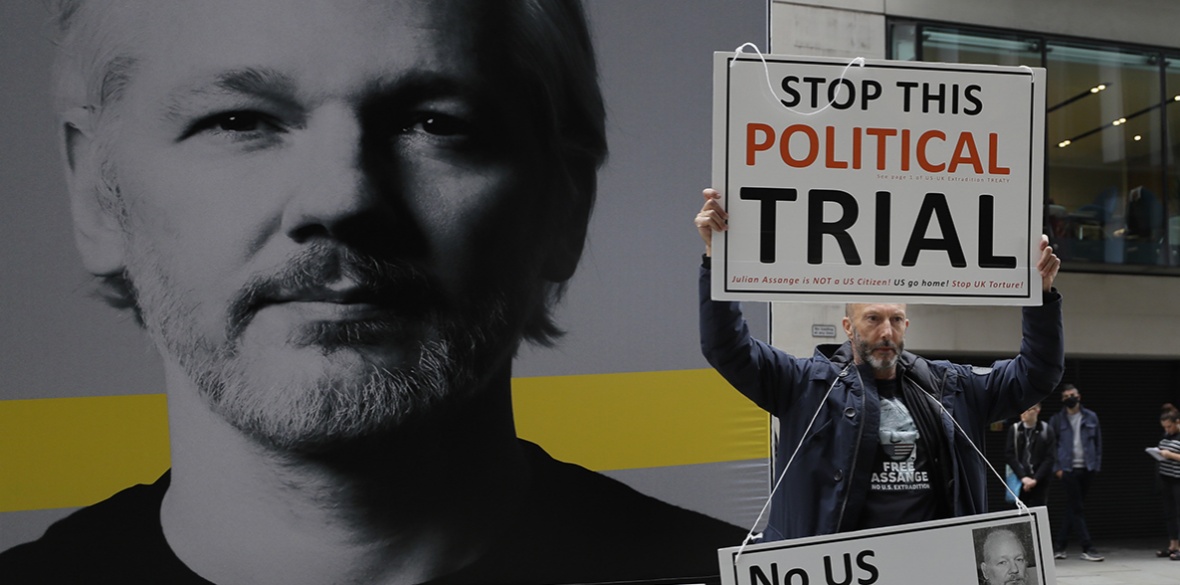This is the last article you can read this month
You can read more article this month
You can read more articles this month
Sorry your limit is up for this month
Reset on:
Please help support the Morning Star by subscribing here
WIKILEAKS revelations added 15,000 civilians to the known numbers of those dead in the Iraq war, Julian Assange's extradition hearing heard today.
The finding, along with other revelations about the Afghan and Iraq wars, fundamentally challenged the US and British narrative of military successes, University of Bradford’s peace studies professor Paul Rogers told the court.
Prof Rogers, who is contracted by the Ministry of Defence (MoD) to train British soldiers, also suggested that Wikileaks exposures had dampened US and British government enthusiasm for military intervention.
The decision to prosecute Mr Assange is “politically motived,” Prof Rogers told the court, and that in 2013 a decision was taken by the Obama administration not to prosecute the Wikileaks founder.
The same impulse was probably behind the decision to commute Chelsea Manning’s 35-year jail sentence at the end of the Obama presidency.
Prof Rogers told the court that he believed, following the election of Donald Trump to the US presidency, there was a fresh determination to “get Assange.”
“Trump sees Wikileaks as a threat and is also keen to do the opposite of what Obama did whenever he can,” he said.
Freedom of the Press Foundation founder Trevor Timm told the court that President Trump was “waging a war on journalists.”
Mr Trump has tweeted more than 2,200 attacks on reporters, and frequently talked to colleagues about his wish to “punish journalists”, Mr Timm told the court.
He said that if this prosecution is to succeed, it would criminalise many of the day-to-day activities of journalists.
“[Bob] Woodward and [Carl] Bernstein would have committed a criminal act when they spoke to Deep Throat on this interpretation of the law,” he said, referring to the US journalists who broke the Watergate scandal that brought down then US president Richard Nixon in the 1970s.
He also described the “secure drop” software that his organisation supplies to many of the world’s largest news platforms to facilitate leaking.
“On their websites, many of these papers and broadcasters openly solicit for leaks,” Mr Timm said. “If this prosecution is successful, all of them would be criminalised.”
Mr Timm made clear that he did not agree with many of Wikileaks’ editorial judgements, but said that, like the question of whether Mr Assange is a journalist, this was irreverent in this context.
“It is for journalistic activity that he is threatened with prosecution and if that succeeds, it threatens every journalist,” he added.
The hearing continues.










